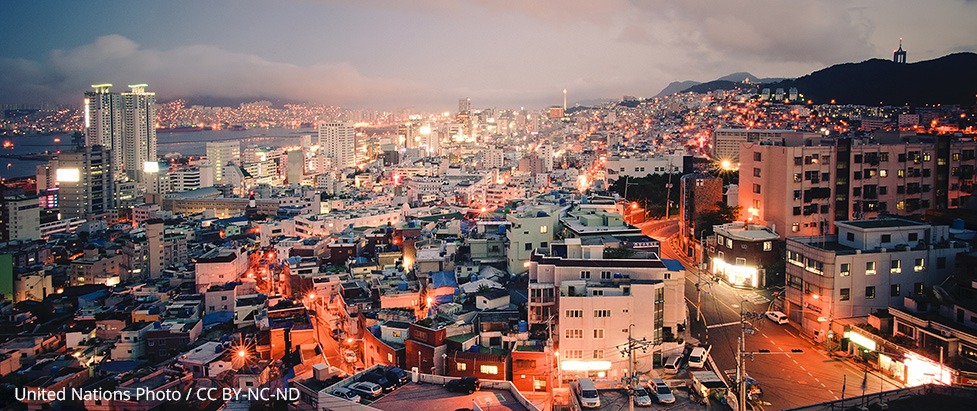Many of us are preparing this week to leave for Busan, South Korea to the 2014 Plenipotentiary of the ITU, a meeting held every four years to elect the officers of the ITU and to assess its working mandate by the Member States. This is a treaty conference; by design, it is a multi-lateral meeting where only governments can make decisions.
The ITU is responsible for a number of important functions that have supported an interconnected telephone system across national boundaries including the allocation of spectrum and development of globally interoperable telecommunications standards. It has promoted the development of communication technologies around the world and has provided financial and technical assistance to regulators, particularly in developing countries. More recently, the ITU has offered important leadership for the deployment of broadband technologies, the underlying infrastructure necessary for deeper deployment of the Internet. On this basis, the Internet Society has indicated its support for the ITU’s continuing role in helping to create the enabling environment in which the Internet can flourish.
Notwithstanding the ITU’s important role in the Internet ecosystem, there is wide consensus that there is no single “governance” structure for the Internet. Nor is there a single, global platform that can serve to coordinate, organize or govern all the issues that may arise. That is because the Internet is an exceedingly complex and dynamic network of networks that has resulted in a borderless marketplace where new users are coming online every day with new ideas and new expectations for how the technology should grow and evolve.
At its heart, the Internet is a decentralized, distributed system that allows policies to be defined by those who require them for their operations and that ensures that issues can be resolved at a level closest to their origin. The ecosystem draws its strength from the involvement of a broad range of actors working through open, transparent, and collaborative processes to innovate and build the network of networks that is the cornerstone of the global economy.
This multistakeholder model has worked to evolve, expand and elevate the Internet to a global information, communication and social phenomenon never before seen on the planet. Our embrace of the multistakeholder model is grounded in the understanding that the Internet has different characteristics from communication and societal models of the past and thus, cannot be “regulated” from the top down but must be “governed” through processes that are designed to be inclusive of all stakeholders and driven by consensus.
Thus, the Plenipotentiary should not adopt policies that lead to a regulatory role for the ITU in the governance of the Internet. The respective roles and responsibilities of multiple and different actors in the Internet ecosystem must be respected. Proposals by some Member States that could give the ITU operational jurisdiction over the technical aspects of the Internet, such as IP addresses, domain names, routing, and pricing should be rejected in order to preserve the Internet ecosystem with all its diversity. Similar proposals that have regulatory implications concerning Internet content and user behavior should also be rejected by the Conference. And finally, based on our support for the bottom-up, multistakeholder model for the Internet, we would not support proposals that give the ITU or the UN system the obligation to develop intergovernmental legal norms or rules for the Internet.
I have confidence that the Plenipotentiary will not agree to place the future of the Internet policy development under the control of an inter-governmental organization. The Internet’s open and diverse ecosystem has proven its extraordinary capacity to advance the evolution of the Internet to the benefit of all. The ITU is an essential part of that ecosystem but only one part. The spirit of cooperation and collaboration must be the principles that guide the Plenipotentiary in its decisions, to enable governments, users, civil society, business and the Internet technical community to work together to preserve the Internet for future generations.
We welcome and applaud Secretary General Toure’s efforts to make the Plenipot more transparent, to listen to the voices of stakeholders and to be responsive to the concerns we and other stakeholders have brought to the ITU with respect to our respective roles. Indeed, we are encouraged by the good will extended to the Internet Society by both Dr. Toure and Deputy Secretary Zhao in the preparations for this meeting and support their intent to have a successful meeting. We are hopeful for a good outcome and we will respectfully continue to urge that proposals that are out of scope do not thwart that outcome.
We recognize that there are legitimate questions to address as the Internet grows and evolves. But the process by which we address these concerns is as important as the outcome. Where inclusive, collaborative processes are adapted to fit community and cultural needs, the Internet will remain open and it will expand and thrive. A top-down, government-only decision-making environment will not serve to preserve and evolve an open Internet because it cannot and will not foster participatory decision making by all those with a stake in an open Internet.
As a community, we must stay true to our values and to commit to participate in our own future. It is important that we collaborate and coordinate with as many stakeholders as possible in the coming weeks, notwithstanding our limited ability to participate directly in the discussions at the Plenipot. We need to make our voices heard with respect to the positive outcome we desire for the Conference.
Thank you for your dedication and passion for the future of the Internet.

